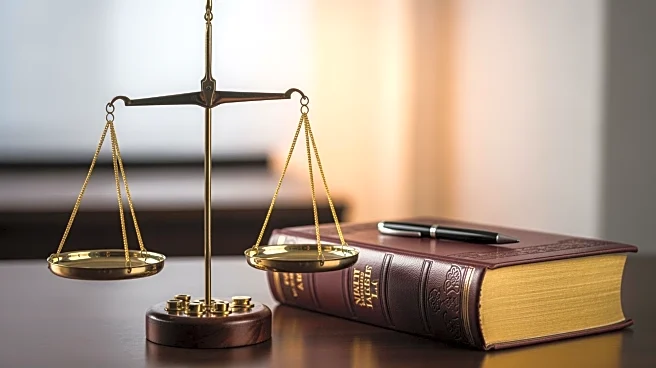Rapid Read • 8 min read
Bloomberg Law has published an article addressing concerns about the impact of generative AI on attorney-client privilege. The discussion was sparked by OpenAI CEO Sam Altman's comments on the lack of legal confidentiality in interactions with AI tools like ChatGPT. The article clarifies that while user inputs to AI tools are not privileged, the use of AI by lawyers does not automatically waive attorney-client privilege. The privilege is maintained as long as reasonable precautions are taken to prevent unauthorized disclosure of confidential information.
AD
The integration of AI in legal practice raises important questions about data privacy and the protection of sensitive information. As AI tools become more prevalent, understanding their implications on legal confidentiality is crucial for maintaining trust in the attorney-client relationship. This issue is significant for legal professionals who must navigate the balance between leveraging technology for efficiency and safeguarding client information. The outcome of this debate could influence how AI is adopted in the legal industry and the development of new regulations to protect client data.
Future developments may include legislative or regulatory actions to establish clearer guidelines on the use of AI in legal contexts. Legal professionals may need to adopt new best practices to ensure compliance with existing confidentiality standards while using AI tools. Additionally, there could be increased advocacy for the creation of a specific AI privilege to protect user data, which would require collaboration between technology companies and legal experts.
The broader implications of AI in the legal field extend to ethical considerations about the role of technology in decision-making processes. As AI tools become more sophisticated, there is a need to address potential biases and ensure that technology enhances rather than undermines the justice system. This ongoing dialogue may lead to a reevaluation of how legal services are delivered and the skills required for future legal professionals.
AD
More Stories You Might Enjoy










